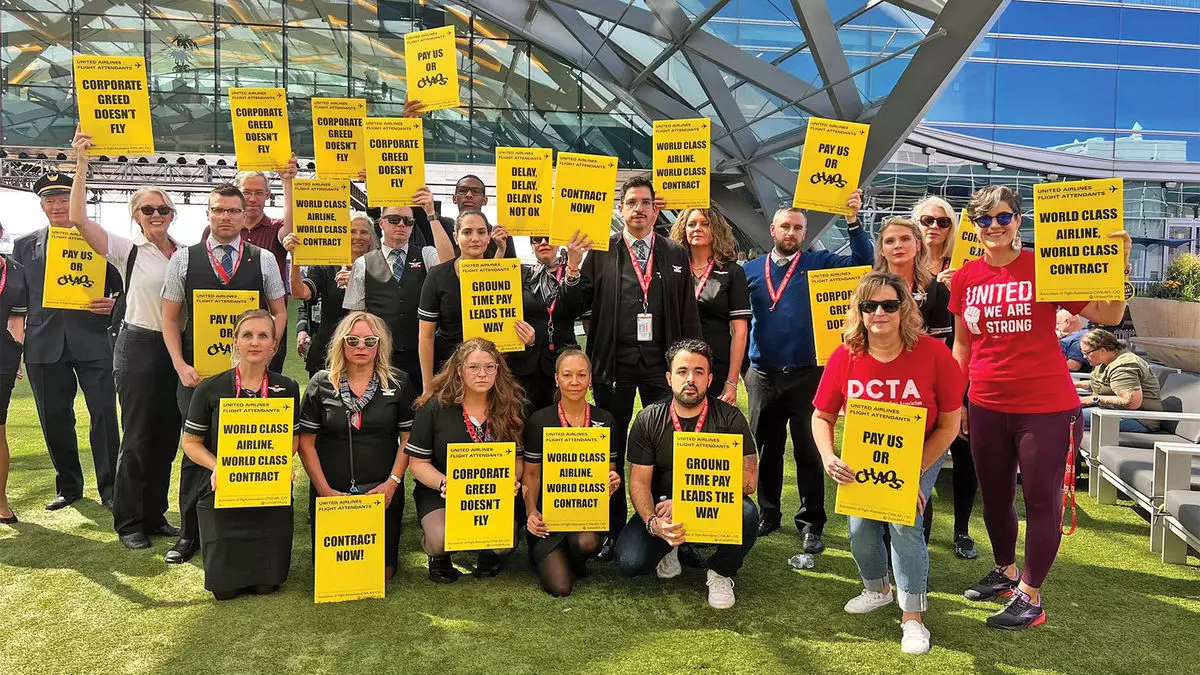The recent vote by United Airlines flight attendants to authorize a strike has sent shockwaves through the aviation industry. With more than 90% of union members participating and nearly unanimous support for strike action, the stakes have been raised in ongoing labor negotiations between United and the Association of Flight Attendants-CWA. While this does not necessarily mean an imminent strike, it does signal a significant escalation in tensions.
Despite the overwhelming vote in favor of a strike, there are still legal hurdles that must be cleared before United flight attendants could actually walk off the job. The Railway Labor Act, which governs strike actions in the airline industry, requires several additional steps to be taken, including a formal release by the National Mediation Board (NMB). This means that there is still room for further negotiations and mediation before any concrete decisions are made.
The use of strike authorization votes as a negotiating tactic is not uncommon in the airline industry. Alaska, Southwest, and American flight attendants have all employed this strategy in recent labor negotiations, with varying degrees of success. While Southwest and Alaska were able to secure new labor deals, American reached a tentative agreement with its flight attendants. This background highlights the potential outcomes of the current situation at United.
The demands put forth by the AFA are reflective of the challenges faced by flight attendants across the industry. These include a double-digit base pay increase, retroactive pay to the amendable date, pay for time spent on the ground, increased schedule flexibility, and other contract upgrades. The disparity between the compensation received by United’s management team and the financial struggles of the flight attendants has been a point of contention, as highlighted by AFA chapter president Ken Diaz.
The vote to authorize a strike by United Airlines flight attendants has injected a sense of urgency into the ongoing labor negotiations. While there are still legal and procedural hurdles to overcome, the demands of the AFA reflect the broader issues facing workers in the aviation industry. The outcome of these negotiations will have far-reaching implications for both United Airlines and its flight attendants.

